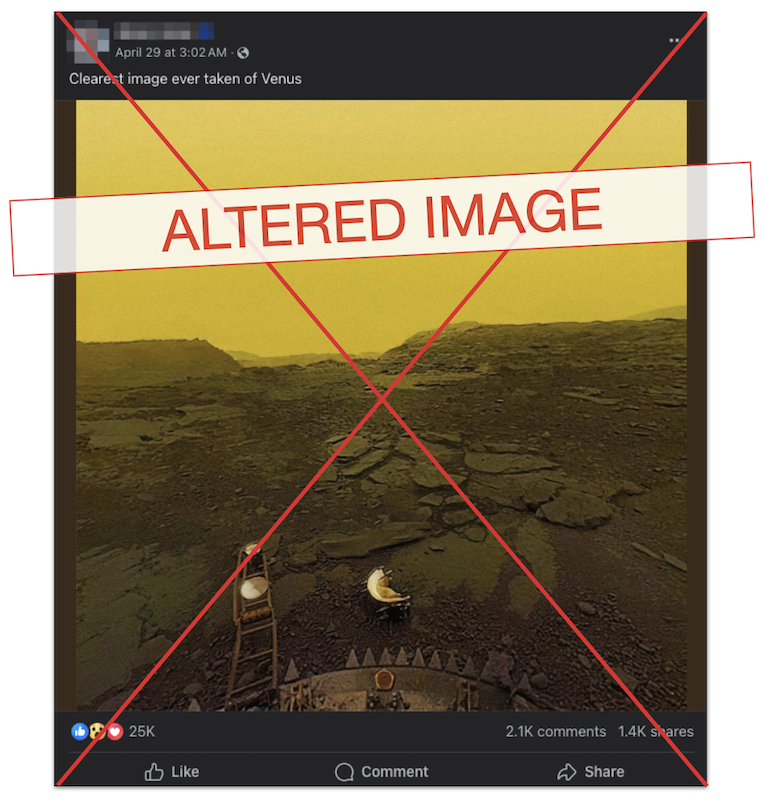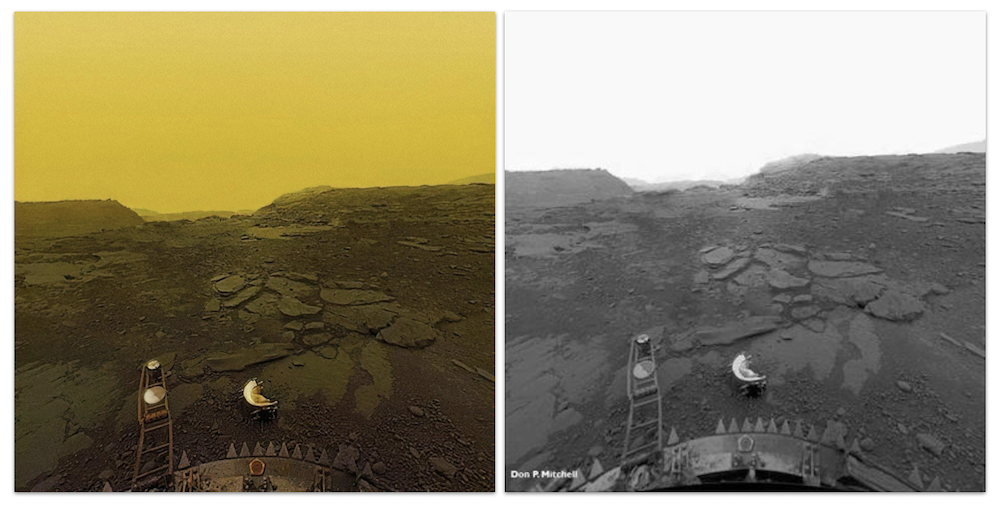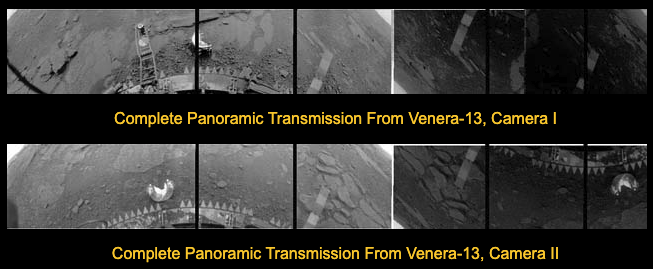Stand up for the facts!
Our only agenda is to publish the truth so you can be an informed participant in democracy.
We need your help.
I would like to contribute
Is this the ‘clearest image’ of planet Venus? No, that photo was altered multiple times
If Your Time is short
-
This is not a genuine photo of the planet Venus.
-
A U.S.-based researcher created the image by editing original panoramic photos taken by a Soviet Union space probe with the programming language C++ and photo-editing software Adobe Photoshop.
-
The researcher’s edited image shows details not seen in the original space probe images, including distant hills on Venus. Other people further edited the researcher’s black-and-white image to color it yellow.
It’s a bird! It’s a plane! It’s the planet Venus — or is it?
An April 29 Facebook post shared a photo that claimed to show the "clearest image ever taken of Venus."
The photo shows a hazy, yellow atmosphere, rocky terrain, small hills in the distance and part of the space probe that supposedly took the image.
This Facebook post was flagged as part of Meta’s efforts to combat false news and misinformation on its News Feed. (Read more about our partnership with Meta, which owns Facebook and Instagram.)
(Screengrab from Facebook)
Although parts of this image derive from real photos of Venus, the image has been altered multiple times to give the appearance of what the planet’s landscape may look like.
A reverse-image search using TinEye traced this photo to a black-and-white version described as a "perspective image mosaic" on a website created by Donald P. Mitchell, a U.S.-based retired scientific researcher.
The left image is from the misleading Facebook post and the right image is from Donald P. Mitchell’s website.
Mitchell said on his website that he created images of Venus’ surface using raw imagery data from Venera 13, a Soviet Union space probe launched in 1981. Mitchell said on X in 2020 that he obtained this data from "friends in the Russian science community."
After Venera 13 landed on Venus, the space probe gathered data and took photos for two hours before breaking under the planet’s harsh conditions. Venus, the second-closest planet to the sun, has the solar system’s hottest temperatures among planets.
Venera 13 took almost two dozen color and black-and-white panoramic photographs of Venus’ surface. The color photos have a yellow tone. NASA said Venus’ true color is difficult to determine because the planet’s atmosphere filters out blue light.
(Screengrab from Donald P. Mitchell’s website)
In the space probe’s panoramic photos, Venus’ rocky surface is visible, along with slivers of the atmosphere.
Space.com reported in 2006 that Mitchell processed and edited these panoramic images in several stages. "To produce the images, Mitchell mixed in special purpose source code, resampling, and other image wizardry, along with knowledge about dimensions of the Venera lander and location of its camera lens," Space.com reported.
Mitchell said on his website that he edited the panoramic images using Adobe Photoshop "to produce views that give a better subjective impression of the Venusian surface."
In 2019, Mitchell explained his process on X. He said the original panoramic images were "reprojected into perspective by a custom C++ program." (C++ is a programming language used for software, game and database development.) The images were then assembled in Photoshop, and "missing pieces were filled by duplicates and reversed duplicates," he said.
"So there is a little artistic license … but not very much," Mitchell told Space.com in 2006.
Through Mitchell’s photo editing, details not seen in the original Soviet space probe photos were revealed, including distant hills on Venus, Space.com reported.
Mitchell told Agence France-Presse in 2021 that although he created the black-and-white landscape images of Venus, "the colorized images are done by other people."
Our ruling
A Facebook post claims a photo shows the "clearest image ever taken of Venus."
This is not a genuine photo. A researcher constructed a black-and-white version of this photo by editing original space probe images with a programming language and Photoshop. The researcher said someone else colored the photo bright yellow.
We rate this claim False.
Our Sources
Facebook post (archived), April 29, 2024
Reverse-image search using TinEye, May 7, 2024
Mental Landscape, "Soviet Venus Images," accessed May 7, 2024
Donald P. Mitchell’s blog website, accessed May 7, 2024
NASA, "Venus - NASA Science," accessed May 7, 2024
NASA, "Venera 13 Lander Mission Page," July 13, 2015
NASA, "Venus - Venera 13 Lander," Sept. 24, 2015
NASA, "Venus Venera 13 Lander Color Surface Photos Panorama," accessed May 7, 2024
NASA, "Venus Venera 13 Black and White Surface Photos Panorama," accessed May 7, 2024
Space.com, "Venera 13 and the Mission to Reach Venus," March 25, 2019
Space.com, "Old Soviet Images of Venus Yield Fresh Surprises," Sept. 11, 2006
The Planetary Society, "Every picture from Venus' surface, ever," accessed May 7, 2024
Donald P. Mitchell, X post, Aug. 30, 2019
Donald P. Mitchell, X post, March 2, 2020
Agence France-Presse, "This image has been enhanced from a photo of Venus taken by Soviet spacecraft Venera 13," Feb. 9, 2021
Browse the Truth-O-Meter
More by Sara Swann
Is this the ‘clearest image’ of planet Venus? No, that photo was altered multiple times
Support independent fact-checking.
Become a member!
In a world of wild talk and fake news, help us stand up for the facts.



































